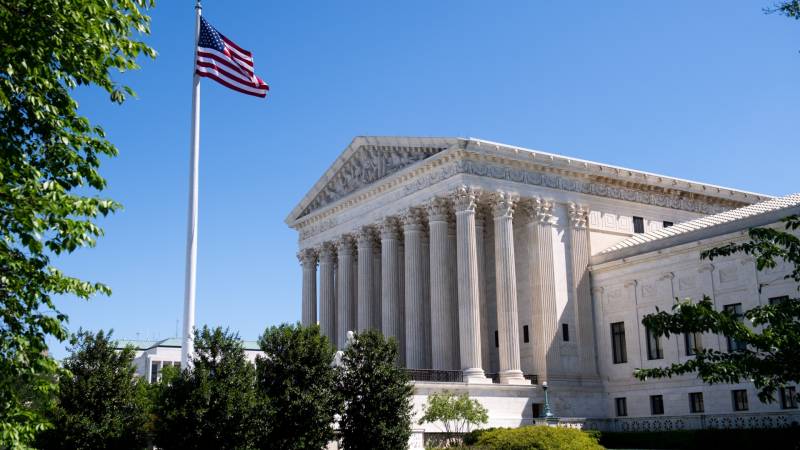Late Wednesday night in an unsigned majority opinion, the Supreme Court declined to block a Texas law that prohibits any abortions after six weeks, making it the most restrictive in the nation. The law, which prohibits abortions even in the case of rape and incest, is not enforced by the state; instead it deputizes private citizens to sue anyone who performs or “aids and abets” an abortion procedure. Chief Justice John Roberts, siding with the minority, described the law “unusual” and “unprecedented” in its attempt to delegate enforcement to private citizens. And writing in dissent, Justice Sonia Sotamayor called the Court’s order “stunning” and criticized the majority for allowing the law to remain in effect while appeals are ongoing. We’ll talk about the Texas law, the latest developments and what this means for Roe v. Wade.
By 5-4 Vote, Supreme Court Refuses to Block Texas Abortion Law, Most Restrictive in Nation

Guests:
David Levine, professor, UC Hastings College of the Law
Mary Ziegler, professor of law, Florida State University College of Law; author, "Abortion and the Law in America: Roe v. Wade to the Present”
Michele Goodwin, chancellor's professor and director, Center for Biotechnology & Global Health Policy, UC Irvine School of Law; author, "Policing the Womb: Invisible Women and the Criminalization of Motherhood"
Joanna Grossman, professor of law, Southern Methodist University’s Dedman School of Law; board member, Jane’s Due Process